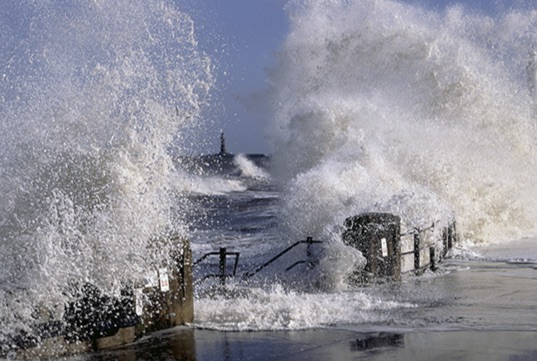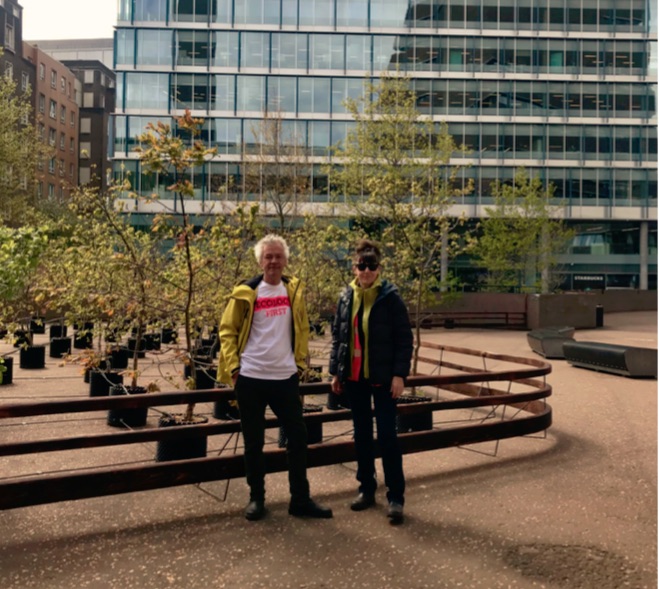(Cover Image: Roger Coulam, ‘Seaburn Steps’, 2019, from a series of photographs of storms at sea around NE English coastal lighthouses)
Addressing climate change is our biggest challenge. Discover here how we are seeking interdisciplinary approaches with our artists and partners at the centre of new networks. Join with us to share innovative ideas towards our goal of environmental sustainability.
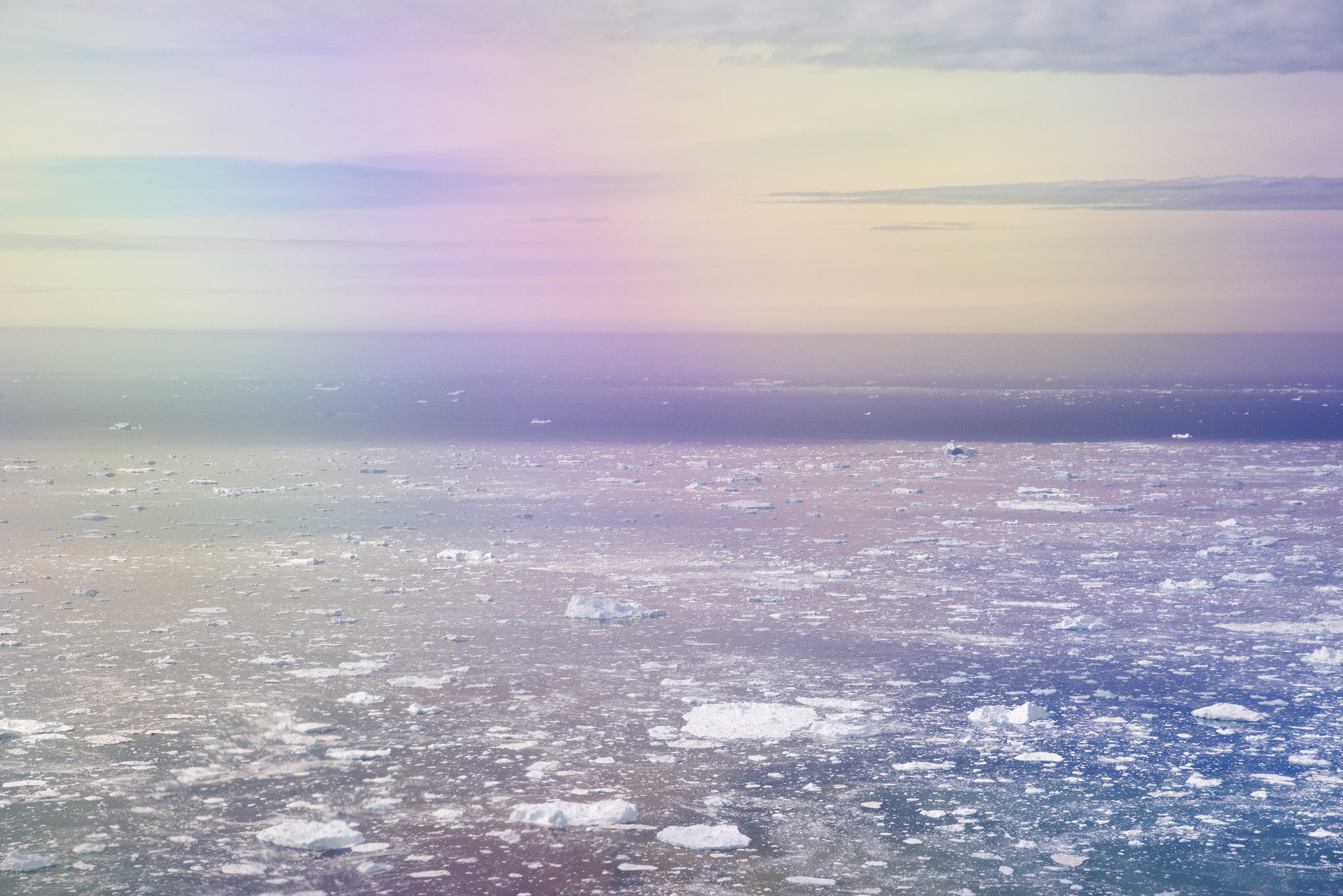
From Series: The Metabolic Landscape.
Archival Pigment Print
99 cm x 65.5 cm
Worsening weather, cumulative effects
Greece and Pakistan recently announced they had had the hottest seasons ever in their known history. Wild fires are breaking out repeatedly in California and South America; the Caribbean recently suffered a drastic hurricane. Weather everywhere is extraordinarily unpredictable and variable, with some places, even in the same country suffering searing heat while other places are shivering with cold and damp.
By now, most people, including sceptics, all have a pretty good idea that weather and climate are connected, and that these odd and unpredictable weather events we are experiencing are a result of climate change. While there have been other eras of climate change in the Earth’s deep history, our’s is worse, and worsening, and it is largely because of human action – and inaction.
Just to recap – here is a list of a few of the conditions we face. These are well known by now and there many places where the details behind these broad statements can be expanded and verified……
Levels of C02 are at an all-time high – harmful gases in the earth’s atmosphere are causing a rise in temperature. These are caused by emissions from over-consumption and burning of fossil fuels.
Biodiversity is decreasing as more and more species cannot survive the changes in the earth’s atmospheric conditions and ecosystems. Additionally, we are likely to see an increase in plant and animal disease as heating continues. We are suffering a mass extinction at a rate of between 69% to 83% species lost over the last 50 years.
The oceans are suffering from pollution from waste dumping and fuel residues; coral reefs are dying and sea creatures diminishing from reckless over-fishing and other threats such as deep sea mining.
Ultimately sea-level rise, which is at present variably predicted, will cause tremendous change in physical conditions and will make certain regions of the world uninhabitable. At present, about 40% of the earth’s population lives in coastal regions – that will have to change – or adapt.
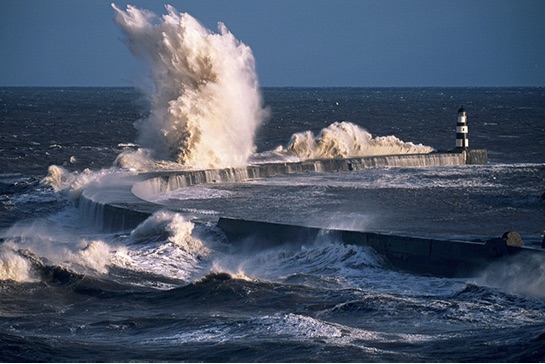
Pressures on resources
But it is not just weather and climate that increases pressure on the world’s resources. Climate change has been exacerbated by population increase, and that, combined with inequitable use and distribution of resources, means that in many regions of the earth, people can no longer survive, and that has been made infinitely worse by wars and conflicts. All of the conflict situations in Ukraine, Gaza, Yemen, Democratic Republic of Congo, – currently the least reported, but where 25 million people are currently suffering severe famine as a result of decades of war and corruption – are made considerably worse by climate change, and are no doubt contributing to its worsening through the proliferation of the vast quantities of fossil-fuelled technology they need. The world was anticipating an increase in climate refugees but wars are adding to that to contribute to a global refugee crisis
Then there is human resistance to change. The worst ever fires are devastating environment, wildlife and livelihoods in the Pantanal in Brazil. It was the world’s biggest wetland, until this year rich in biodiversity. The area has had a regular fire season, however, the worsening of the fires is linked to climate change in that lower rainfall has reduced the water levels which normally limit the risk of fires spreading. However, a recent report states that 90% of those fires are regularly started locally by rangers responsible for land management, most of which is privately owned. We need more information to be sure, but this suggests that people are behaving as if their business could be conducted as usual and are not communicating that the deterioration of conditions requires a change in normal practice.
Everything interrelates
What can we do in the face of such enormous, terrible and tragic events ?
Statistics and facts like these gathered together are frightening and depressing. What is clear, is that it is just not possible to consider each issue contributing to the climate crisis in isolation, as everything connects and inter-relates. In the face of such complexity, it is easy for an individual to feel overwhelmed and helpless. However, even though we are fortunate in many ways in Western Europe to live in peaceful democracies, we must never forget a) how fragile that is, or might become, and b) the extent to which we have collectively caused the problems of over-consumption, pollution, waste generation, fuel extraction, biodiversity loss and general extractivism.
Climate change is inescapable, and just as pressures on resources have been caused by a collective culture of privileged over-consumption and greed, it is up to all of us as the consumers who contributed to it, to address it with positive measures of repair, restitution, adaptation and change in habits.
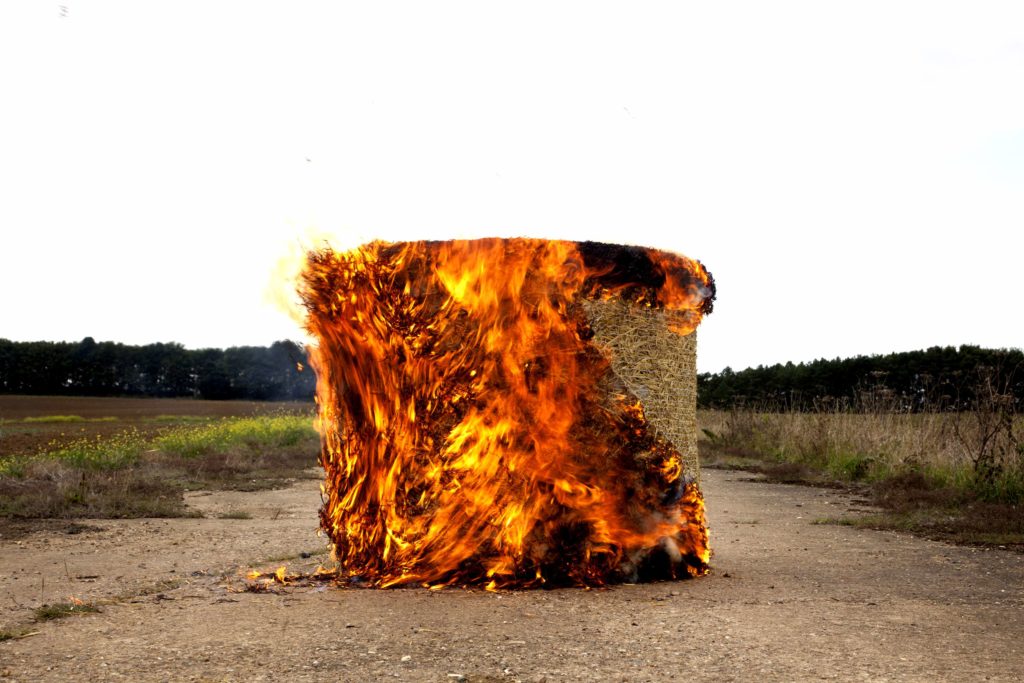
Forming Networks
While individually we might be feeling overwhelmed and helpless, the worst thing we can do is to remain passive. Passively pursuing business as usual won’t effect any of the change we need to re-stabilise our world. One route is protest, to force business and governments into action. Organisations like Extinction Rebellion, Just Stop Oil, Greenpeace and Friends of the Earth are taking a lead in organising active protest. Others like Culture Declares Emergency, Architects Declare, Writers Rebel, are mobilising support for collective creative action and attitude change.
But there is room for more concerted moderate creative action. Artists through their practice are taking an exemplary lead to help people address issues relating to climate change. By taking imaginative approaches to how we interpret the world, artists can inspire people to find ways to adapt their lives creatively. But we, ie. all of us, need to go further, with and alongside them. Taking the widest possible view of creativity, we need to involve the whole range of specialisms and talents across arts and sciences to bring about change and innovation. The viewing and responding public have many many strengths and knowledges to contribute. It is all about combining our talents. This is what GroundWork NetWork is aiming to do, starting across art & environment – our heartland of action. By working on principles of cooperation, collaboration, discussion and through open-ness to the exchange of ideas, GroundWork NetWork aims to fashion an imaginative and collective approach to climate change.
In general we are advised in life to pick our battles. And there are some literal ones which will always be out of reach – until we can find an alternative to war, conflict, greed, or the desire for overweening power. But we can both join the organisations who advocate moderation, practice peace, challenge injustices, and shine further light on the issues, to add more collaborations.
It is through local action that we will eventually address the bigger issues that seem intractable. The original mantra for the environment movement holds good – think globally, act locally. Attending to matters on our own doorstep, looking closely at what we face locally, and then aiming to see those things in a bigger perspective is what that involves. The other contribution made by the environment movement since the 1970s was its methodology of network thinking. Combining individuals with groups, ideas with themes, one specialism with another, produces a potentially powerful way to build an effectively networked campaign.
GroundWork Network is not only focused on climate change, nor does it presume to find any major solutions to the problems of climate change. But it aims to contribute collective creative thinking by bringing people together from different specialisms. We can join forces to think together with positivity about the culture changes we need to cope with climate change, as each small action from an individual will be cumulative when added to others. And, given the interpenetration of the causes for each of the problems, we have to work collectively, combining expertise, forming networks of action.

